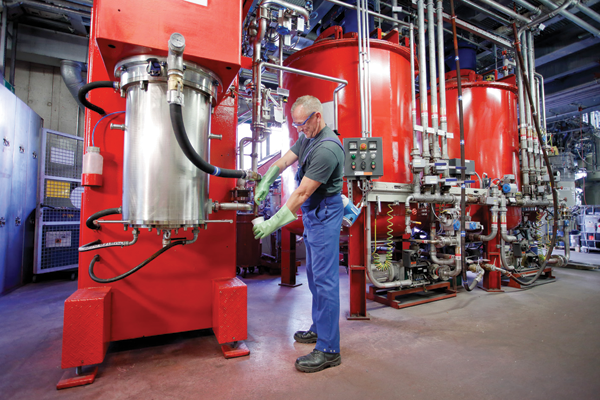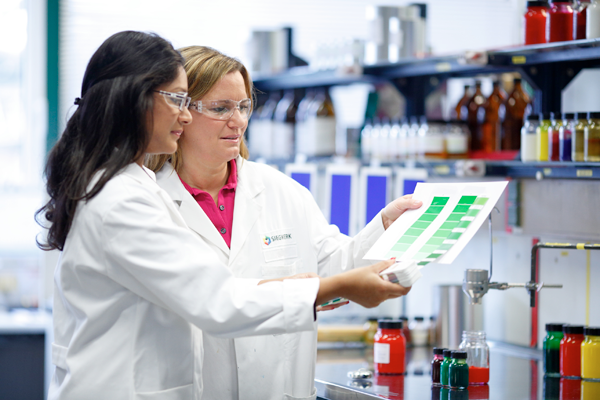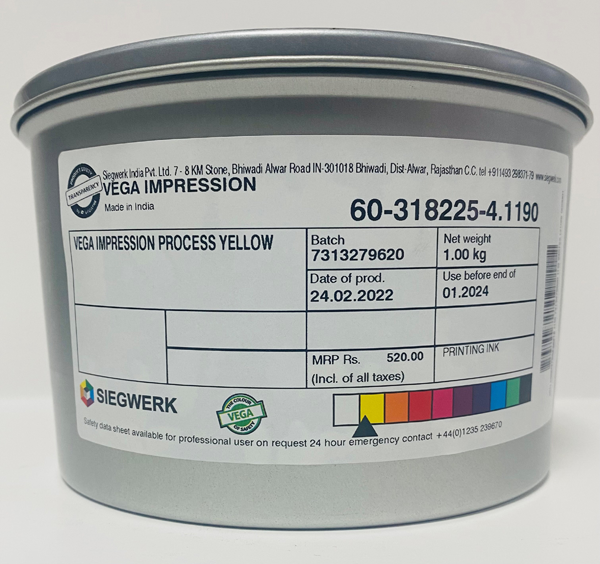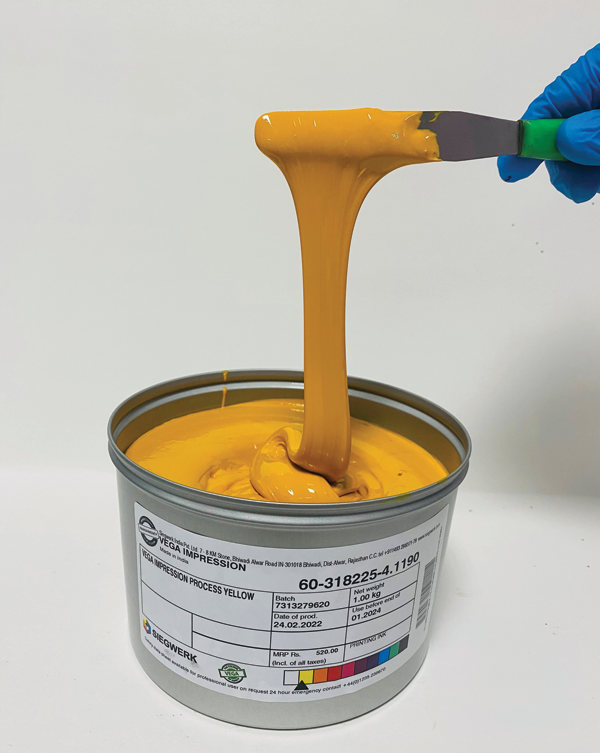The food and beverage sector is the main driver of the packaging market’s expansion in India - The Noel D'Cunha Sunday Column
Siegwerk’s CEO Dr Nicolas Wiedmann quotes the Mordor Intelligence data for the sector which expects a CAGR of 29.88% from 2018 to 2028. And with 12 facilities in India, Dr Wiedmann tells PrintWeek, Siegwerk is well positioned to best serve its customers across the country and remain able to expand capacities as business demands
05 Mar 2023 | By Noel D'Cunha
Nicolas Wiedmann (NW): Overall, 2022 was undoubtedly an exceptionally challenging year full of uncertainties hitting the industry quite hard. From the ongoing effects of the Covid-19 pandemic, continuously rising raw material and utility costs to the war in Ukraine, the economic environment was volatile, and outcomes remained difficult to predict.
PW: How did you navigate through these challenges, meet performance targets?
NW: Our teams have worked hard to ensure we can continue serving our customers, make important progress on our sustainability agenda and further expand the company’s global footprint.
Although we could not fully meet our performance targets for the year, we still achieved important successes. With the successful acquisition and integration of La Sorgente, one of the most important ink suppliers for flexo printing in Italy, we, for example, further strengthened our position in the European packaging market. Besides, we have been honoured with several sustainability awards around the world.
PW: Anything India specific?
NW: India in particular, was one of our growth regions in 2022. The team did an excellent job enabling strong progress and growth during the crisis.
One local milestone was, for example, the commissioning of a specialised solvent-based blending facility at our Bhiwadi site in Rajasthan early that year. This new centre complemented the existing 100% toluene-free manufacturing plant to drive local growth further.

PW: If we go back a little, the years 2020 and 2021, they too have been volatile. Did you feel the impact?
NW: The two years’ volatile economic environment has put all market players under high pressure. The ability to react quickly and adapt to rapidly changing circumstances has never been more important for companies as during that time. Thus, we have systematically adapted and reorganised our processes to these continuing challenges. We made every effort to ensure the optimisation of our organisation and systems to be able to make better decisions faster, continue to serve our customers and support our employees worldwide.
PW: What are the lessons learnt?
NW: Today, we are able to evaluate all impacts on pricing, availability, logistics and relationships with our suppliers in a significantly shorter time and derive adequate actions more quickly. Besides, we have established a network of backup suppliers to create an even more robust global supply network, securing a worldwide supply as stable as possible. We have also built corporate and local business continuity teams to jointly monitor the overall industry and markets to anticipate potential disruptions, such as supply shortages, border closures or broader transportation disruptions. All this enabled us to ensure the availability of our products on the market and allow competitive terms for our customers even in such a highly volatile environment.
Despite all economic uncertainties, we always stayed focused on our goals to continue growing our strong position within the global packaging market. We further set on differentiation via innovation and digitalisation to improve efficiencies and build new business opportunities while further investing in our infrastructure, technology, and personnel to promote long-term growth for our future.
NW: There is no “one size fits all” solution when it comes to packaging printing. The requirements for inks and coatings are highly complex and vary from packaging application, intended purpose, used materials, and printing technology. That’s why we always offer customised solutions that are concretely adjusted to the individual customer needs considering everything from printing set-up through packaging material, application, and targeted packaging end-life scenario to applicable regulations.

NW: Latest collaboration projects with customers and industry partners, for example, include the development of an innovative oxygen barrier coating with Henkel that enables mono-material packaging solutions with better recyclability and better barrier properties: Multi-functional thin layers replace incompatible multi-layer structures, creating recyclable packaging to support circular economy ambitions. We also joined forces with Clariant, Borealis and Beiersdorf to tackle the challenge of creating recyclable consumer packaging based on 100% retrieved plastic packaging waste for cosmetics applications. These are just a few collaboration examples. We are currently working on other exciting and promising projects about which I am not allowed to reveal anything yet.
NW: The trend towards a circular economy will dominate the upcoming trade shows here in Europe. Sustainability is a hot topic and the most important key driver in our industry, as the need for change has never been more pressing than today. It’s about enhancing the performance and recyclability of packaging to ensure a cleaner future for the next generations.
.png)
NW: Product safety is, and remains, the most important and challenging aspect of the packaging and a key concern, especially in food packaging. Also, the apex quality and safety regulators in India - the Bureau of Indian Standards (BIS) and Food Safety and Standards Authority of India (FSSAI) - have already highlighted the importance of packaging safety through the Food Safety and Standard (Packaging) Regulations, 2018 and subsequent revisions. Providing safe printing inks and coatings for the intended end use has always been one of our top priorities.
NW: Even before any national legislation in 2018, Siegwerk India had already started its transition to toluene-free packaging inks. It voluntarily moved to 100% mineral oil-free production in 2022 following the company’s global commitment to product and consumer safety.
NW: To externally monitor and verify our sustainability performance, we, for example, pursued a certification by EcoVadis, a leading business sustainability ratings provider, which methodology is built on international sustainability standards, including the Global Reporting Initiative, the United Nations Global Compact and the ISO2600, covering 200 industries and more than 160 countries.
NW: To date, we have made successful progress on our journey to become a circular and digital packaging solutions company. We are developing circular ink and coating solutions and continuously rethinking our processes and business according to a circular approach.
NW: All in all, HorizonNOW represents the roadmap of our sustainability journey, ensuring that all our actions have the desired impact. To guarantee its success, HorizonNOW is also backed up by a proper organizational structure with dedicated resources to concretely drive sustainable change inside as well as outside of Siegwerk. With our “sustainability office”, we facilitate and guide the implementation and advancement of this sustainable business agenda while the Sustainability Council ensures top-management responsibility.

NW: In 2022, India was one of the fastest growing economies and the sixth-largest consumer market in the world. Until today, the country has emerged as one of the largest consumers and producers of inks in the Asia Pacific region. Furthermore, the expansion of organised retail, the rise in the middle-class population’s purchasing power, and exports contribute to a growing packaging demand to increase shelf life, maintain production speed, and guarantee quality.
India has especially seen solid packaging growth in the food and beverage sectors due to increased packaged food consumption and demand for quality products. Besides, growing investments in the food processing sector are further opening up new packaging opportunities aiming for the reduction of agricultural crop waste.
NW: Our local ink production capacities are aligned with the increasing packaging demand. With our state-of-the-art solvent-based blending centre at Bhiwadi in Rajasthan, we, for example, have an extensive blending capacity of over 13,500 metric tons (MT) and a storage capacity of 700 MT. Our warehouse and colour matching centre in Tauru, Haryana, in turn, has a storage capacity of 1,000 tons and still has room for further expansion requirements.
With all our 12 facilities in India, we are well positioned to best serve our customers across the country and remain able to expand our capacities as business demands.
NW: As a global company with around 5,000 employees in more than 30 countries, we know that our people - the so-called Siegwerkers - are our most important asset. Their motivation and engagement are the basis for our success. That’s why our employees are always at the heart of everything we do.

- Fav most app? Apple fitness app to track my daily physical activity.
- Besides your phone and wallet, what are a couple of must-have items you always carry? In the meanwhile only my phone and no more wallet. And unfortunately also my glasses.
- Window or aisle seat? Aisle.
- Snack or meal? Snack.
- Cocktail or diet drink? Cocktail.
- SUV or luxury? ECar.
- What’s the current author you are bingeing on? Philippa Perry, and the book is: The book you wish your parents had read (and your children will be glad that you did).
- One celeb who you met who has impressed you? Dirk Nowitzki.
- First thing you notice in a biz meeting? Energy level.
- One question you always ask when you are hiring? What’s the biggest miss in your business life.
- What’s the one thing you wish you knew at age 21? A lot of problems are solving themselves.
- What’s the best piece of advice you’ve received? Marry that woman.
Product spotlight – VEGA – The colour of safety
There have been major transformations in the Indian packaging industry with the introduction of food safety and standard (packaging) regulations in packaging safety. With the Bureau of India Standards further revising the standards on food packaging inks, it made safety procedures more stringent, keeping consumer safety as the primary objective.
In 2017, Siegwerk’s commitment towards product safety led it to the decision of supplyingonly toluene-free inks, much before it became a legal obligation.Taking it forward we introduced an entirely new ink range of inks – Vega that is completely mineral oil-free and safe for packaging as well as non- packaging applications. “We have done this because, it is our commitment to make food packaging safer and also ensure the safety of our supply chain partners and end consumers. We strive to support the brand owners and supply chain partners and help them keep their brand reputation intact.We aim to put an end to mineral oil cross-contamination for packaging that uses Siegwerk inks. And we strive for strict adherence to compliance set by regulatory bodies such as FSSAI and BIS.”
--













 See All
See All